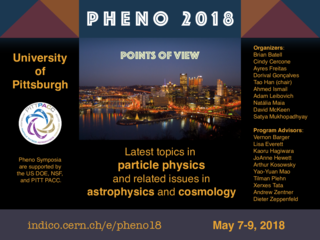Speaker
Description
Future neutron-antineutron ($n$-$\bar n$) oscillation experiments, such as at the European Spallation Source (ESS), aim to find first evidence of baryon number violation. We investigate implications of an improved $n$-$\bar n$ oscillation search for baryogenesis via interactions of $n$-$\bar n$ mediators, parameterized by an effective field theory (EFT). We find first and foremost that even in a minimal EFT setup, there is substantial overlap between the parameter space probed by the ESS and the region that can realize the observed baryon asymmetry of the universe. We further find that the mass scales of exotic new particles can be significantly higher than what could be detected at the LHC or its envisioned upgrades. Given the innumerable high energy theories that can match to, or resemble, the lower energy minimal EFT that we discuss, future $n$-$\bar n$ oscillation experiments could have substantial impact on many viable theories of baryogenesis beyond what other experiments can probe.

